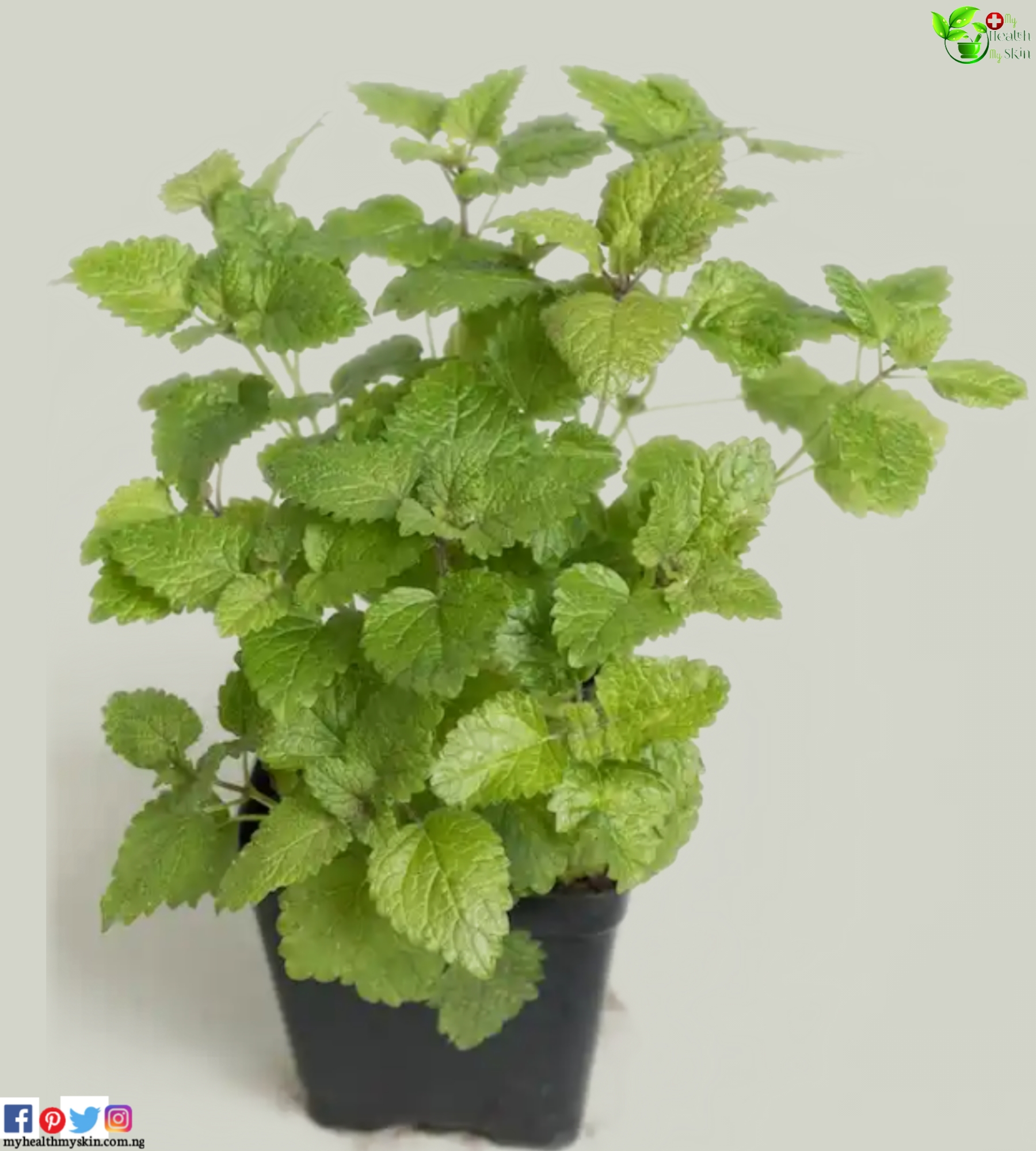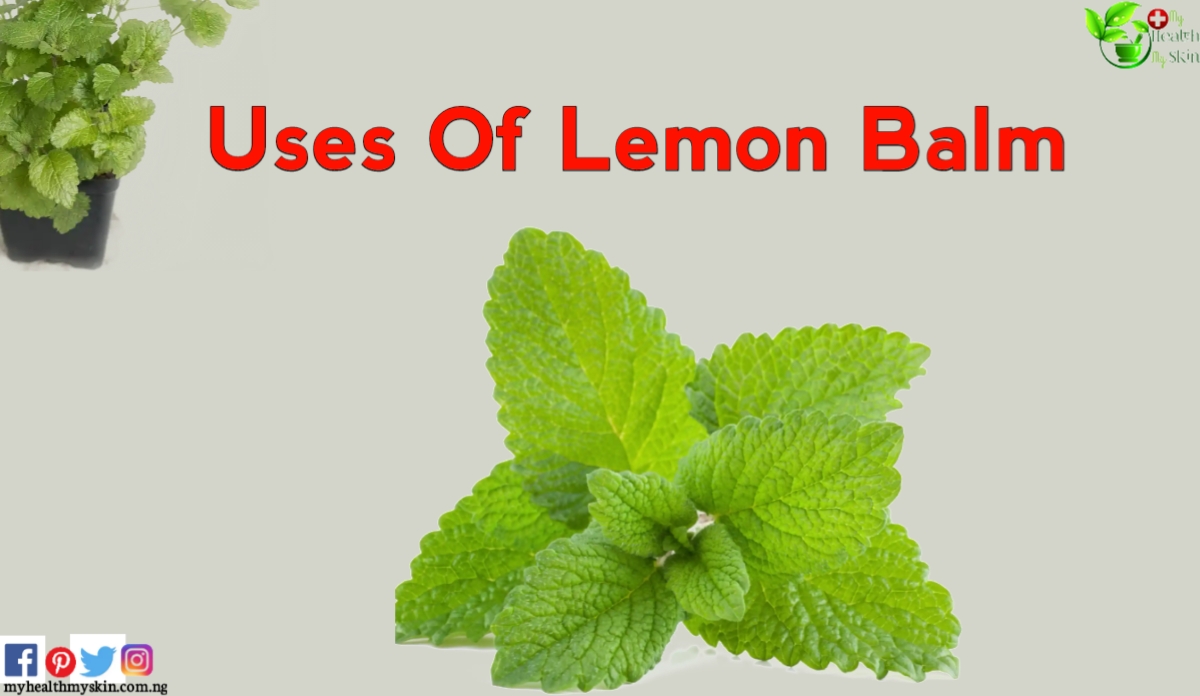Lemon balm, also called “Melissa officinalis” is a herb from the mint family. There are so many uses of lemon balm including multi-functional cooking herbs that can be used to taste many different types of savory and sweet dishes.
It has a gentle and pleasant herbal taste and citrus tones. You can use lemons in the recipe to replace lemon skin. Add fresh lemons balm in salad, sandwich, steamed vegetables, soup and stews.
Used in desserts, add bright lemons for fresh fruit salad, juice sorbet and egg tarts. Add fresh or dry lemons, marinab, seasonings and vinegar. Lemon coordinated with rosemary, bull to and other Mediterranean herbs.
It can be planted in your garden or at home, or in the farmers market or grocery store. It is used for cooking and herbal tea formulas, this lemons (sometimes called Toronjil) also exists in the form of extract, ointment, tincture or oil.
The main ingredients of essential oils in Melissa Officinalis are citracetal (neutral and geranium), cocco, fragranol, flavoriol and β-stone bamboo-oxide. Plant chemicals in lemon balm include phenolic acid, terpene, rosemary acid and caffeic acid. Lemon fragrance also contains tannins and thoric phenol.
Lemon balm is generally considered to help alleviate pressure and anxiety, and lemon fragrance contains a rosemary acid (a compound having an antioxidant characteristic).
It is also used in insomnia, latex, high cholesterol, genital herpes, indigestion and gastric burning. In the form of essential oil, the fragrance of lemon balm is used to reduce the pressure.
Although lemon balm has been used as a natural therapy for a considerable period of treatment, few scientific research surveys its possible health benefits. In this article we will be looking at 5 uses of lemon balm.
Five Uses of Lemon Balm

The following are some discoveries of an existing research on the uses of lemon balm:
1. Anxiety
According to a small study published in 2014, lemon can be used to help reduce anxiety nutrients. Researchers provide participants with lemon fragrance (sweeteners containing natural or artificial sweeteners) or placebo drinks or yogurt. The beverage containing 0.3 grams of lemons containing fruit sweeteners is associated with lower anxiety and improved work memory, and there is no damage to mental motion.
2. Insomnia
Lemon may have some effect on sleep with herbal valerian combination. A study published in clinical practice, for example, suggestion that lemon and valerian binding may help improve the quality of sleep during menopause. In this study, 100 women with sleep disorders between ages from 50 to 60 were given valerian / lemon balm combination or placebo. Researchers observed that lemon / valerian supplements appear to be beneficial to mitigate sleep disorders.
3. Antiviral Properties
Lemon extracts with antiviral properties and antiviral activity with anti-herpes zoster virus in laboratory studies. For example, a study was published in plant therapy, found that lemon balm extracts inhibited 1 single herpes simplex virus (virus caused by neutrophils). Lemonia is usually used locally in oil, ointment, cream, ointment or lipstick.
4. Palpitations
According to a study published in the magazine, lemon scent may help reduce the incidence of benign palpitations National Pharmacology magazine magazine in this study, people with benign palpitations twice twice a day (MEL) at the end of the two weeks, the number of lemon balm extracts to reduce the frequency and anxiety symptoms of the phenomenon compared to the placebo.
5. Alzheimer’s Disease
Preliminary studies have shown that lemon extracts can inhibit choline esterase (the same mechanism as the drug used to mild to moderate Alzheimer’s disease), and can also reduce β-amyloid (constructing plaque) Although lack of clinical trials, existing studies include a study on the study of neurology, neurosurgery and psychiatry.
Participants with mild to moderate Alzheimer’s disease take lemon balm or placebo for four months.
At the end of the treatment period, the lemon balm extract produces better results on cognitive functions. In addition, the agitation in the lemon fragrant group was found to be rare.
According to a study of Alzheimer’s disease, aromatic therapy and the fragrance of lemon essential oil may not better reduce the excitement of Alzheimer’s disease than placebo.
Alzheimerism and old age cognitive impairment. In England’s three elderly psychiatrics, participants may or may have Alzheimer’s disease and excitement.
After a month, it was no significant difference between aromatherapy, Donhppevery (a drug for treating mild to moderate Alzheimer’s dementia) or placebo.
Now, we have described the 5 uses of lemon balm, in this section we will be looking at lemon balm tea recipe.
Recipes For Lemon Balm Tea
- A simple lemon tea with a simple lemon tea begins to cut some fresh lemons leaves. Wash them clean and tap the leaves.
- Cut the blade or tear into a small piece, and then placed in a tea immersion unit. Pour the hot water and inject the leaves for about five minutes.
- When brewing lemon tea, be sure to keep the teapot or cup is covered always in order to maintain steam. Steam is considered to contain herbs to treat aromatic oils.
Other recipes with lemon balm include the use of chopped fresh leaves on salad or use chopped vanilla in fish, poultry product or vegetables.
Possible Side Effects
Side effects of lemon balm may include headache, nausea, bloating, gas, vomiting, indigestion, dizziness, stomach pain, urinary pain, anxiety, excitement, and allergic reactions.
It is not recommended for long-term, periodic or large doses to use lemon fragrance (some people worry that the stop will trigger some people rebound anxiety).
Lemon balm may cause calm. Herbs may interact with supplements and drugs, such as sedatives, thyroid drugs, chemotherapy (such as tamoxifen and Irinkanda), warfarin, glaucoma drugs, and drugs affecting serotonin and GABA. It should not be takenwith alcohol.
High doses of lemon balm may affect thyroid function and result in an increase in anxiety and negative emotions.
Pregnant women, breastfeeding mothers and children should not take lemon balm supplements. Avoid taking lemon within two weeks after a predetermined surgery.
You can read our other article on the 10 Scientific Health Benefits of Lemon Balm, but bear in mind that self-treatment and avoidance or delay standard treatment may have serious consequences.
Conclusion
Although occasionally drinking a glass of lemon balm tea can help promote the good health, but you also needs to perform more research before using herbs to treat anxiety or Alzheimer’s disease. If you are still considering using it, first talk to your healthcare provider to weigh the pros and cons, discuss whether it is suitable for you.







